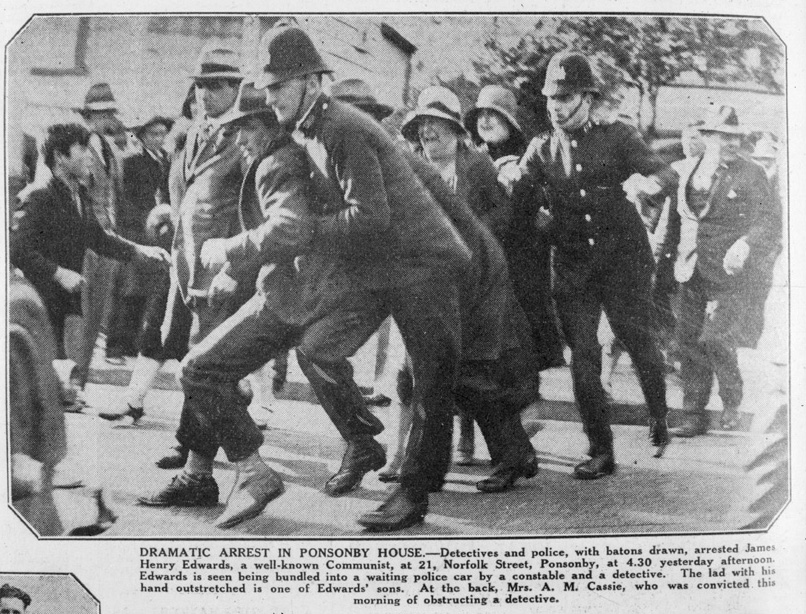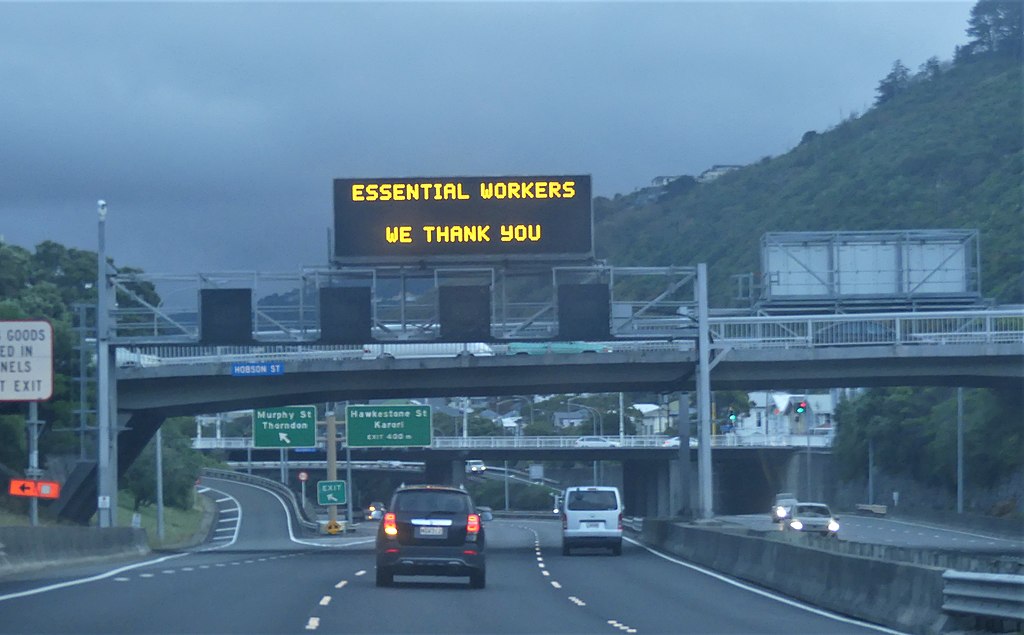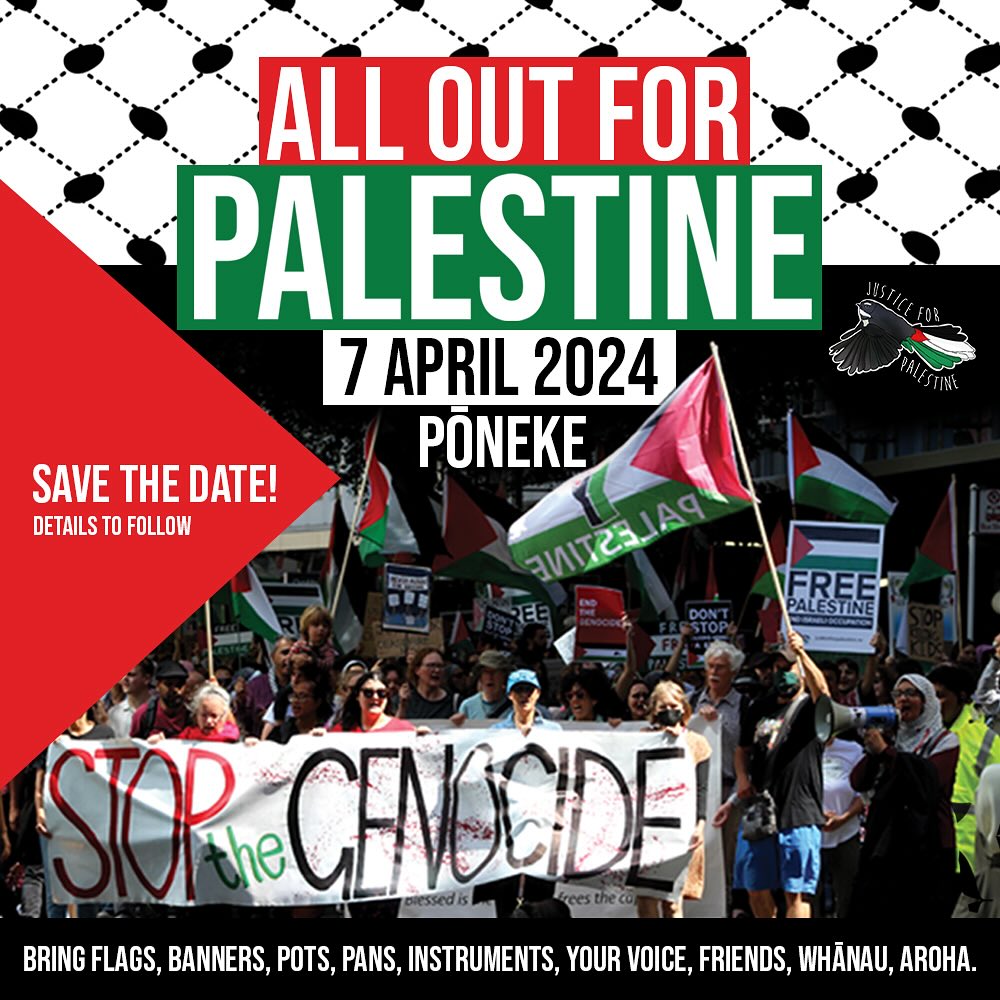Cory Anderson gave this talk to the Auckland branch of the International Socialists.
April marked 100 years since New Zealand troops landed in Turkey with the purpose of opening up yet another front in the bloodiest war that history ’till then had seen. It’s something of an irony then, that at the very same time as John Key and Tony Abbott are laying wreaths at the memorials, while wiping away a hard-squeezed tear and murmuring “never again,” they are sending troops back to the very region of the world invaded by their predecessors 100 years ago. Now, as then, it falls to socialists to oppose the war.
New Zealand, the US and Imperialism
It’s a rule of capitalist politics that our rulers never tell us the real reasons why they send us to war. The latest intervention in Iraq and Syria isn’t any different: you only need to look at the coalition of nations “allied” against ISIS to see that it isn’t about fighting terrorism, religious extremism or bigotry. It’s hard to see how tyrants like the Saudi ruling family, which heads a regime with its own strict religious police and which beheads of 400 people each year in Riyadh’s infamous “chop-chop square” can genuinely bring freedom to anybody. The Iraqi army NZ troops will be training and supporting is hardly a more appealing prospect – not so much as an army as a “sectarian protection racket”- propped up since its collapse by sectarian militias whose response to ISIS is to wage their own campaign of ethic cleansing.
The real reason the US is leading a new war in Iraq is of course clear to everyone: oil. Just as control of Iraq’s oil reserves was the real reason for the invasion in 2003, ensuring that Iraq’s oil remains under the control of a “friendly” and compliant regime is the key concern of the US and its imperialist co-conspirators is the reason for the new war. After sweeping through northern Iraq mid-last year ISIS posed a vital threat to these interests – and so ISIS had to be dealt with. The “humanitarian” values suddenly discovered by Obama regime are only a cover, and are no more real or genuine than those of his predecessor (George W. Bush).
So that’s why the US is going to war, but what of John Key and the New Zealand government? John Key and the National Party remain slavishly committed to the alliance with the US. This makes it necessary to commit New Zealand’s troops when the US goes to war: it is, as Key put it in a rare moment of candour, “the price of the club”.
Being part of this club is vitally important not just for John Key, but for the business elite of the whole of New Zealand. The interests of capitalists in New Zealand form part of a web that enmeshes them with the major imperialist powers – principally the United States. To see why, we need to widen our focus and take a look at the world-system that Marxists call imperialism.
Imperialism, for Marxists, is not simply a bad or overly aggressive foreign policy. Imperialism refers to the structure of capitalist society in which competition occurs not just between individual firms in the marketplace, but between nation-states which together with the firms within them operate as giant combines. As capitalism develops, the “peaceful” competition of firms on the market is more and more supplemented with the violent competition of nation-states for the “division and re-division of the entire world”.
Like those of any developed country, New Zealand’s capitalists are keen to spread their tentacles not only around their immediate region, but right around the globe. Fonterra is a good example. Not only is it a major supplier of milk products to the Pacific, South-East and Eastern Asia, it also operates farms in Chile and other parts of South America. Burger Fuel is another – a familiar sight on New Zealand streets for some years, it has also been carefully cultivating new operations in the Middle East. Other New Zealand based companies with interests in the Pacific and around the world include those mining and high-tech manufacturing.
To protect and develop their overseas interests, the New Zealand business elite must maintain connections not only with local ruling classes in the places they exploit, but also with the regional and global powers capable of nurturing their operations. And the key player guaranteeing stable conditions for exploitation in the Pacific, South-east Asia and South America is of course, the United States. Allying with the United States therefore, is in the interests of New Zealand capitalists because it helps promote their own “mini-imperialism”.
ISIS, Imperialism and Iraq
Understanding the imperialist nature of war and military intervention in the modern word is vital if we are to see through the war propaganda and take a genuine stand for humanity. The cynical nature of their own goals aside, modern wars are presented to us as battles for “democracy”, “free-speech”” and “western values” against despotism, terrorism and barbarism. But this presentation of the war – ISIS versus the West – is an oversimplification that doesn’t tell the full story.
In seeking to dominate Iraq, the United States and its allies (including New Zealand under both Helen Clark and John Key) put themselves on a collision course with the masses of workers and the poor in Iraq. After invading in 2003 to secure their control of Iraqi oil, occupation forces launched a neo-liberal assault on what infrastructure remained after more than a decade of sanctions and war. The regime of Paul Brenner, the American administrator, rushed through laws forcing open the public sector, the welfare system and health services to privatisation. Services that were once provided by the state on at least a nominally equal basis were contracted out to local strongmen, militia leaders and sectarian parties who turned them into highly profitable protection rackets. Far from creating a stable, secular and democratic Iraq, the imperialist goals of the occupation ensured that it paved the way for rivalries and descent into sectarian violence that dominates Iraqi politics today.
Indeed, from the very beginning, even before they had set foot in Baghdad, US officials decided to deal with Iraq as a country composed of competing, distinct communities. This view of Iraqi society seems to have been based on a rough estimate of the percentages of Arab Shia, Sunni Kurds and Sunni Arabs – as reflected in a map circulated widely amongst US officials in 2003. It was an exercise in divide and rule. Sectarian “balance”- and therefore its corollary, sectarian competition – was enshrined in America’s Iraq from the start.
The use of a sectarian quota system for appointments was implemented by political parties in post-occupation Iraq whose survival was bound up with entrenching sectarianism. As one commentator put it, the set-up “in effect, privatised the Iraqi state. The system has allowed the Iraqi political elite to strip state assets for personal gain and to fund the parties they represent”.
The functioning of the occupation and the way it shaped the politics of the new Iraq is also why it is useless to seek the origin of the sectarian divide in “ancient rivalries” – as the mainstream media does. Sectarian, tribal and religious differences have of course existed in Iraq (and throughout the world) at different times in history, and they have of course been used by various rulers through the ages for their own purposes, but the dominant picture presented by history is one of the various communities living together in relative peace and with a high degree of integration – not a state of perpetual and unending conflict. Even immediately prior to the 2003 invasion, as crisis bought about by US sanctions and bombing raids encouraged the regime of Saddam Hussein to lean increasingly on Sunni sectarianism and ethnic conflicts, lived reality blunted sectarianism. Iraqis from different backgrounds mixed together in state employment and Baghdad remained a significant Kurdish population even at the height of Saddam’s brutal war against the insurgency in the north.
The course encouraged by the occupation changed all this. A united and secular Iraq would have been a genuinely independent nation capable of challenging American control of its resources. The initial winners in the process were Shia Islamist parties with close links to the occupation administration, but Kurdish allies of the US also benefited as the occupation enabled them to consolidate their grip on northern Iraq. But this was not the way the majority of Iraqi people, both Shia and Sunni saw things: 80 percent of Iraqis in both Shia and Sunni areas saw the US troops as occupiers and 81 percent wanted them to leave. Combined with dismemberment of the Iraqi state and society, this created the conditions for the bloody sectarian civil war of 2006-7, the emergence of Al Qaeda in Iraq and the eventual rise of ISIS.
Freedom for Iraq! Freedom for Syria!
Real and genuine freedom for the people in the regions threatened or actually under the control of ISIS won’t come from the bombs of US warplanes or any client regime they install, or the intervention of regional powers like Saudi Arabia or Iran. But there is a force that can oppose both the brutality of ISIS and create an alternative to dictatorship and foreign domination. Uprisings have rocked the Arab world since first the Tunsian dictator Ben Ali was overthrown in January 2011, and the Egyptian dictator Hosni Mubarak a month later. Across the region, ordinary people have taken politics into their own hands, solidarising themselves with one another in the demand for democratic rights. At the height of the democratic movement, the sectarian divide was nullified – in Egypt, Christian demonstrators protected Muslims while they prayed during the protests that led to Mubarak’s overthrow.
The wave of democratic protest that shook the region hasn’t of course skipped over Iraq, or neighbouring Syria. Far from it – the current civil war in Syria has its origins in peaceful protests against the dictatorship of Bashar Al-Assad which were violently suppressed. In Iraq, two waves of protest rolled through the country, the first beginning with the “Day of Wrath” on February 25, 2011 which set off a cycle of weekly protests, and the second centered on the Sunni-majority areas of in Anbar province. The demands of the movement were diverse, ranging from the fight against unemployment, to condemnation of the lack of basic services like electricity – still not fully restored since the 2003 invasion – the release of political prisoners and even opposition to the whole sectarian system established by the US occupation.
Of course, the revolutionary wave has since been rolled back across the region. In Iraq the government was quick to react with severe repression, using a repertoire of tricks learnt from the occupying powers: tear gas, rubber bullets and live ammunition, mass arrests, checkpoints and torture. In Syria, the government responded with barrel bombs and tanks. But it is not totally exhausted. Revolutionaries still fight on for democracy in Syria, and protests against the new dictatorship in Egypt are still occurring. Military intervention won’t help the revolutions – rather it will harm them. The US seeks ultimately to come to an accommodation with the Asssad regime in Syria and in Iraq to strengthen and re-instate the regime that so brutally suppressed the protests of 2011 and 2013. Only a revival in the popular struggle will be able to put an end to the violence in a way that promotes genuine democracy, liberation and equality.
This is perhaps the greatest reason why we should oppose the new war in Iraq. New Zealand troops – whatever their role – will be doing nothing but aiding an oppressive regime. The humanitarian intentions mouthed by John Key, and the whole of the New Zealand and “Western” ruling classes are just lies – smokescreens for their real intentions. 100 years ago, when New Zealand troops were sent to the other side of the world to invade the Ottoman Empire – they were lying too – it wasn’t about fighting “despotism”. What the invasion of Turkey was about became clear after the allied victory: the Ottoman Empire’s oil-rich possessions in Mesopotamia were carved up and divided amongst the victors. They’ve been lying to us for 100 years – this war, just like the last war, and the one before it, is a war for empire and oil.









